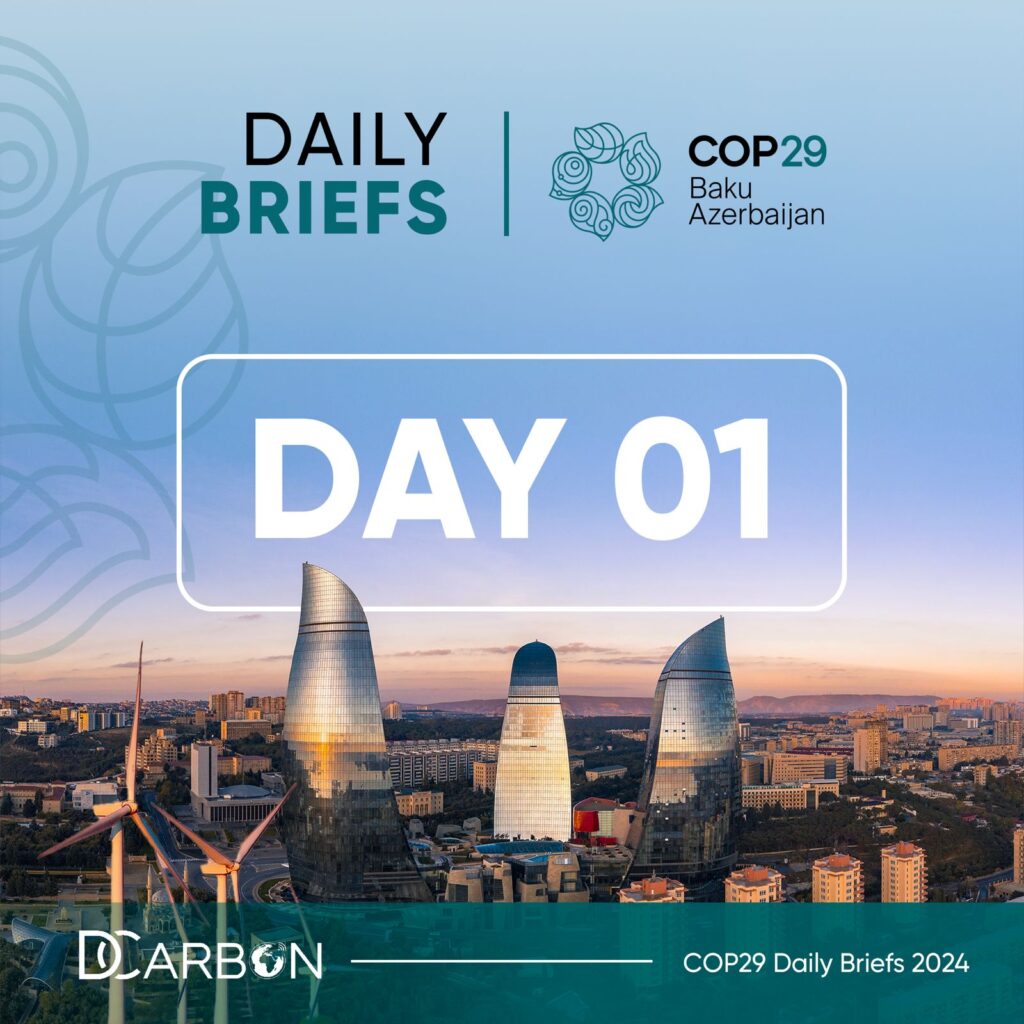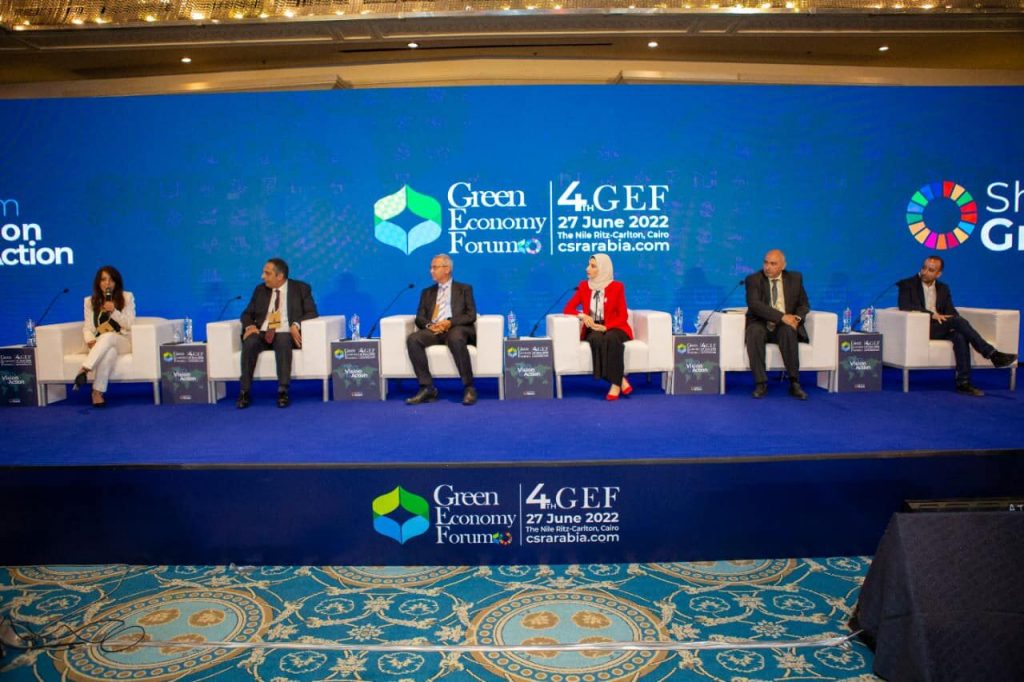Blue Zone
COP29 kicks off with a Call for Global Cooperation
Azerbaijan, UN Climate Change Executive Secretary Simon Stiell stressed the urgent need for global unity during the opening of COP29 in Baku. Stiell urged delegates to accelerate efforts to limit global warming to 1.5°C and ensure equitable benefits for all nations, reiterating the irreversible shift towards clean energy, with investment projected to reach $2 trillion in 2024—almost double that of fossil fuels. He recognized the progress made by the current agreements calling for an urgent need to implement these measures to thwart further temperature rise. Stiell stressed that the way forward must include collaboration and proactive implementation, sharing a personal story of his neighbour’s home destroyed by a hurricane, featuring the real-life stakes of climate inaction. He passionately reminded attendees that the UN climate process is crucial for global accountability stressing that the world could be heading towards a catastrophic 5°C increase in temperatures if it weren’t to this. His call to action set a tone of determination and urgency for the summit.
U.S. Climate Envoy Reassures Amid Concerns Over Trump’s Return
John Podesta, U.S. climate envoy, reassured delegates that despite the recent presidential victory of Donald Trump, the U.S. will not thoroughly concede climate action. He added that the Inflation Reduction Act, a keystone policy for advancing clean energy, would continue to support investments in solar, wind, and other renewable technologies. Podesta noted that the legislation has built-in resilience due to bipartisan support, making it challenging to fully dismantle.
Podesta acknowledged the disappointment many felt with Trump’s election but urged global leaders to maintain their confidence in U.S. climate commitments. He pointed out that state governments and local actors would continue to play critical roles in reducing emissions. Despite Trump’s plans to increase fossil fuel production and withdraw from international agreements, Podesta stressed that the momentum for clean energy and sustainability is too strong to be completely stopped.
Opening Speeches Emphasize Urgency and Financial Needs
Opening speeches from COP29 President Mukhtar Babayev and UAE COP28 President Sultan Al-Jaber stressed the critical need for enhanced climate finance. Babayev highlighted the suffering and loss experienced by many due to climate-related disasters, calling for countries to make bold financial commitments to prevent future tragedies. He framed this moment as “unmissable” for tackling an existential threat, urging nations to take collective responsibility.
Al-Jaber shared that 2024 had seen record-breaking growth in renewable energy and noted that 55 major companies joined the oil and gas decarbonization charter. While he praised the financial mobilization of $6.5 billion through the UAE’s Alterra climate fund, critics were quick to note that part of these funds have been invested in gas projects. This duality illustrated the complex balancing act between advancing renewables while addressing current energy needs.
Agenda Disputes Settled; Talks on Finance to Take Center Stage
The opening day faced challenges as countries negotiated the COP29 agenda, with some disagreements lasting into the late hours. Key points of disagreements included following up procedures on last year’s Global Stocktake and the likability of incorporating discussions on trade measures like carbon border taxes. The final agreement placed the UAE Dialogue for implementing the Global Stocktake outcomes under the ‘finance’ track, a move supported by developing nations but viewed cautiously by the EU and other developed countries.
A middle ground was reached allowing space for additional topics, such as transitioning away from fossil fuels, to be discussed in parallel. This resolution set the stage for more focused negotiations on financial aid and other critical climate action areas. Diplomats stressed that while progress had been made, maintaining cooperation throughout the summit would be crucial to address the multifaceted challenges ahead.
Breakthrough on Carbon Credit Rules
One of the significant developments on COP29 Day 1 was the approval of new carbon credit trade rules under Article 6.4 of the Paris Agreement, which had been stalled for years. The decision was met with differentreactions. Whereas COP29 President Mukhtar Babayev regarded it as a historic moment that could channel vital resources to developing nations, some negotiators expressed discomfort with the rapid adoption. The rulemaking process dodged traditional scrutiny, raising concerns of transparency and governance.
Civil society groups voiced their concern, arguing that these rushed decisions might compromise environmental integrity and human rights safeguards. Critics like Erika Lennon from CIEL warned that the approved rules could lead to harmful practices. This decision reflects the tension between the urgency to implement climate solutions and the need for thorough oversight to ensure that measures are both effective and ethical.
WMO Predicts 2024 as Warmest Year on Record
The World Meteorological Organization (WMO) released an update to its “State of the Climate 2024” report, revealing that this year is on track to be the warmest on record. The report noted that from January to September, global mean surface temperatures were 1.54°C above pre-industrial levels, fueled by both climate change and the El Niño phenomenon. While this does not mean that the 1.5°C threshold has been permanently breached, it emphasizes the escalating frequency of dangerously high temperatures.
WMO Secretary-General Celeste Saulo emphasized that even slight temperature increases exacerbate climate extremes and associated risks. The report highlighted that the last decade, from 2015 to 2024, would be the warmest on record, with significant ocean warming observed. Saulo’s remarks served as a warning that without accelerated mitigation, even small temperature increments could lead to severe, irreversible consequences.
Brazil’s New 2035 Emissions Target Criticized
Brazil announced a new emissions reduction target of 59-67% from 2005 levels by 2035 as it prepares to host COP30 next year. While the move was a step forward, NGOs and climate experts criticized the target for being insufficient to meet global climate goals. The Brazilian thinktank Climate Observatory embarked that achieving a 92% reduction would be more aligned with limiting global warming to 1.5°C.
The lack of detailed policies and a clear strategy to phase out fossil fuels further fueled skepticism. Natalie Unterstell, president of the Talanoa Institute, pointed out that without strong action plans, Brazil’s new target risks being seen as symbolic rather than substantive. This announcement illustrates the challenge many countries face in balancing national interests with the global imperative for deeper emissions cuts.
Germany Advocates for Expanded Climate Finance Contributions
Germany continued its campaign to expand climate finance contributions to include more economically capable nations, not merely the traditional industrialized countries. Foreign Minister Annalena Baerbock called for countries with sufficient economic capacity to step up their contributions. This push comes as the conference debates a New Collective Quantified Goal (NCQG) for post-2025 climate finance, building on the $100 billion annual target agreed upon in previous years.
Jennifer Morgan, Germany’s climate envoy, noted that these discussions would be challenging and likely to last until the end of the summit. Despite economic constraints, Germany reaffirmed its commitment to provide at least 6 billion euros annually as of 2025. The German approach aims to set a precedent for broader responsibility-sharing in climate finance, countering potential shifts in U.S. policy under President-elect Trump.
Green Zone
COP29 holds a panel session on “Net Zero Carbon COP29: Partnerships for a Sustainable Future
“Net Zero Carbon COP29: Partnerships for Sustainability” is the title of the session held in the COP29 Green Zone, organized by the COP29 Presidency. Key stakeholders discussed COP29’s climate action initiatives. Panelists included Ayan Najaf, a Coordination Board Member and spokesperson for the COP29 Azerbaijan Operating Company; Marina Olshanskaya, COP29’s Sustainability Advisor and Senior Climate Change and Green Finance Expert; Sabit Zeyniyev, Deputy Chairman of the Executive Board at “Tamiz Shahar” JSC; Rustam Gasimov, a Managing Director with extensive experience in the electrical and electronics manufacturing sector; and Dave Rosen, a philanthropist and carbon markets expert from New Zealand. The session tackled critical topics, and climate action topics such as waste management, renewable energy, clean technologies, and GHG emission reduction. The participants explored joint efforts to establish and implement sustainability initiatives, focusing on ways to position COP29 as a sustainable event model by effectively utilizing greener and more sustainable resources.
Baku hosts Youth Leadership Forum as part of COP29
The COP29 Youth Leadership Forum sought to explore consistent and complementary mechanisms to counter climate change. Influential young leaders dedicated to climate action, were brought together through the event to advocate for intergenerational justice and advancing effective climate policies.
Environmental activist Enkhun Byambadorj, Palestinian youth representative at COP29 Mohammed Usrof, Sigurd Seindal Krab from UN Youth for Climate and Environment, and Denis Acampora, executive director of the Ugandan-based international organization Goodlife, were amongst the speakers who discussed impactful ways to amplify youth voices, sharing their perspectives on combating climate change.
The forum stressed the significance of youth activism in promoting climate change initiatives at international organizations and national governments levels to mitigate climate change and strive for net-zero emissions.
COP29 sheds light on the role of higher education in countring climate change
A panel discussion focused on the role of higher education in addressing climate change, with representatives from leading universities examining how academic institutions can support sustainable development was held during the COP29 conference in Baku.
Ebru Canan Sokullu, Deputy Director of the Human Resources Department at the United Nations Institute for Training and Research (UNITAR), stressed the importance of the event. “Today’s gathering brought together experts to explore how universities can advance climate action through research, policy engagement, and by preparing future leaders in sustainability and environmental stewardship,” she said.
Sokullu added that climate change is one of the unprecedented global challenges, reiterating that higher education institutions play a vital role in shaping leaders, fostering innovation, and advancing sustainability.
Participants stressed that universities play a pivotal role in conducting research, driving policy discussions, and training future leaders, equipped to address climate change issues.
Refrences:
https://unfccc.int/cop29/updates-archive
https://www.reuters.com/world/trump-trade-worries-cloud-cop29-climate-summit-baku-2024-11-11/
https://time.com/7174439/sultan-al-jaber-climate-finance-cop29-uae-consensus/
https://en.apa.az/cop29/sustainability-event-held-on-opening-day-of-cop29-green-zone-453065





